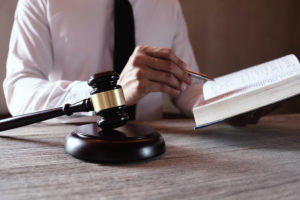
A defendant in the United States who has been accused of wrongdoing cannot be deprived of life, liberty, or the pursuit of happiness without due process. As the Constitution guarantees, this due process generally takes the form of a trial by a jury of one’s peers.
While defendants are entitled to a fair trial, actually getting a fair trial generally requires the help of a trusted legal professional. There are myriad rules of criminal procedure that address a huge number of technical and procedural issues during the pre-trial and trial phases. There are also rules on all aspects of a criminal trial, from how to pick juries to how evidence can be presented to what burden of proof the prosecutor must meet to secure a conviction. It is imperative every defendant facing charges try to make the legal system work for him, which means finding an advocate who knows all the criminal procedure rules.
Most defendants who go to trial and face the potential for a criminal conviction do not know Nevada laws on trial procedure and are not going to be able to advocate for themselves as well as a professional could. Defendants facing a criminal trial have the right to be represented by a Las Vegas defense lawyer, and they should not only exercise that right but should try to find the best defense attorney they can who is going to give them the strongest shot at avoiding a guilty verdict.
LV Criminal Defense is a firm trusted by many defendants facing charges in the Vegas area because of our skills, abilities, and consummate professionalism. When you need an attorney you know you can trust, we are the firm to call.
The Nevada rules for criminal trials are found within Nevada Revised Statutes Chapter 175. These rules address a diverse array of issues and establish guidelines and requirements for the steps in the trial process. The aim is to ensure a fair trial with impartial members of the jury, although this does not always occur.
Nick Wooldridge has a long track record of representing clients accused of serious federal and state crimes in Nevada.
The issues that are addressed in N.R.S. Chapter 175 include:
The regulations set forth within Chapter 175 of Nevada’s law are some of the single most important because these rules and requirements will determine how your criminal case proceeds. A successful case could mean the difference between freedom and jail, and you owe it to yourself to understand the procedural process that will determine your fate.
The outcome of your criminal trial is going to determine if you have to go to jail, face fines or other penalties, and live with a criminal record that can affect future opportunities for the rest of your life. It is imperative you are represented by a qualified Las Vegas defense attorney at all phases of the trial process.
LV Criminal Defense is ready to provide you with the representation you both need and deserve during a criminal trial. Not every defense attorney is experienced in providing representation in court, as some defense lawyers simply try to settle every case through plea deals. While our legal team can negotiate favorable plea agreements in appropriate situations, we are also ready and eager to go to court to help defendants try to avoid conviction altogether.
We work hard to help explore possibilities for introducing doubt or for raising effective affirmative defenses during the trial phase, so a prosecutor isn’t able to secure a guilty verdict. Knowing all of the rules for criminal trials is very difficult for defendants, and you need someone who knows how to develop the most effective trial strategy possible.
When I initially met with Mr. Wooldridge, he took the opportunity to sit and go over my problem with me. He described details in my case which he found disturbing and explained why he I should have him on my side.
When your future is at stake, LV Criminal Defense will fight hard for you. Give us a call today to schedule a consultation and learn more about the assistance we can offer.